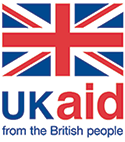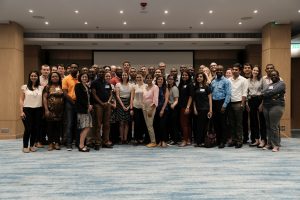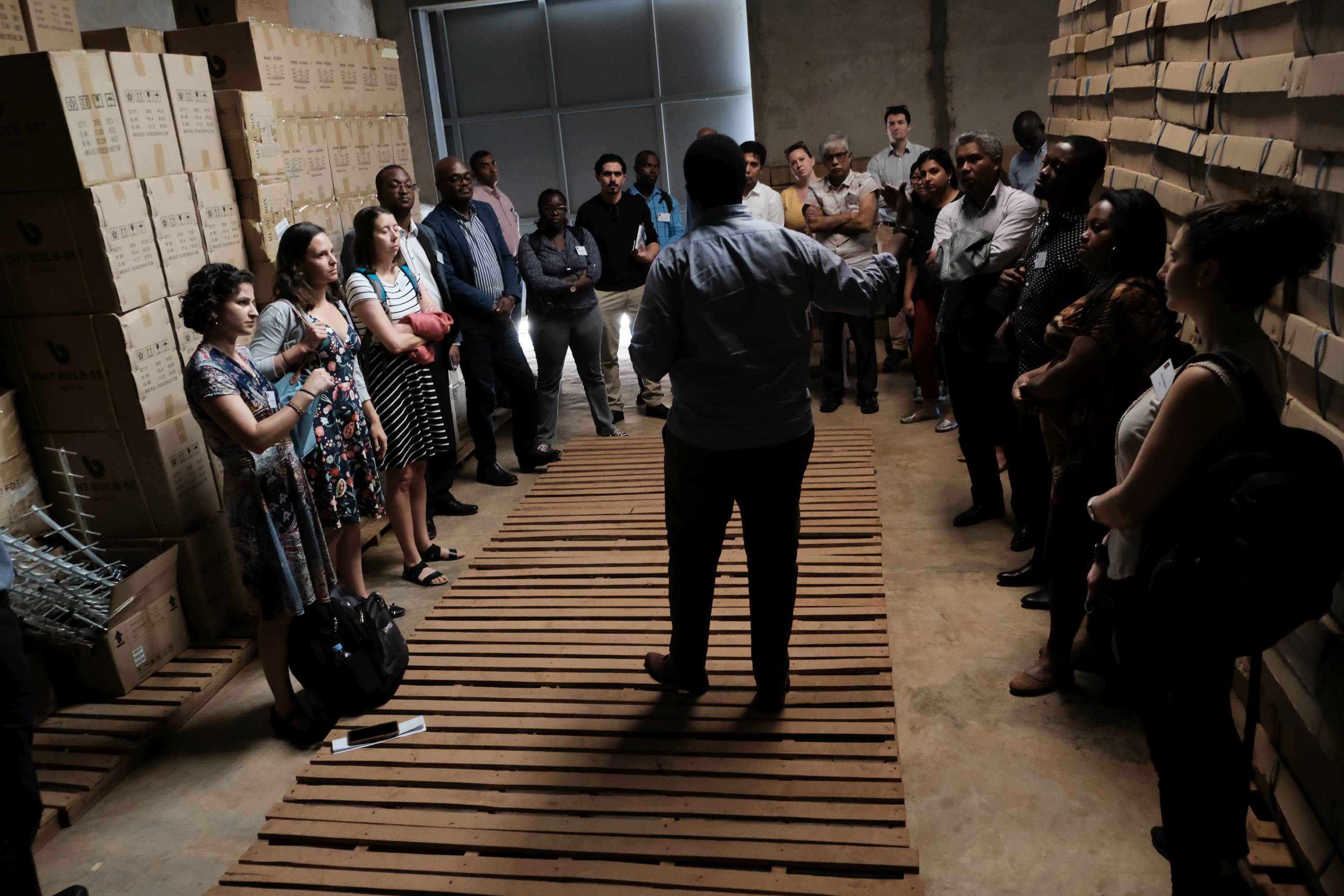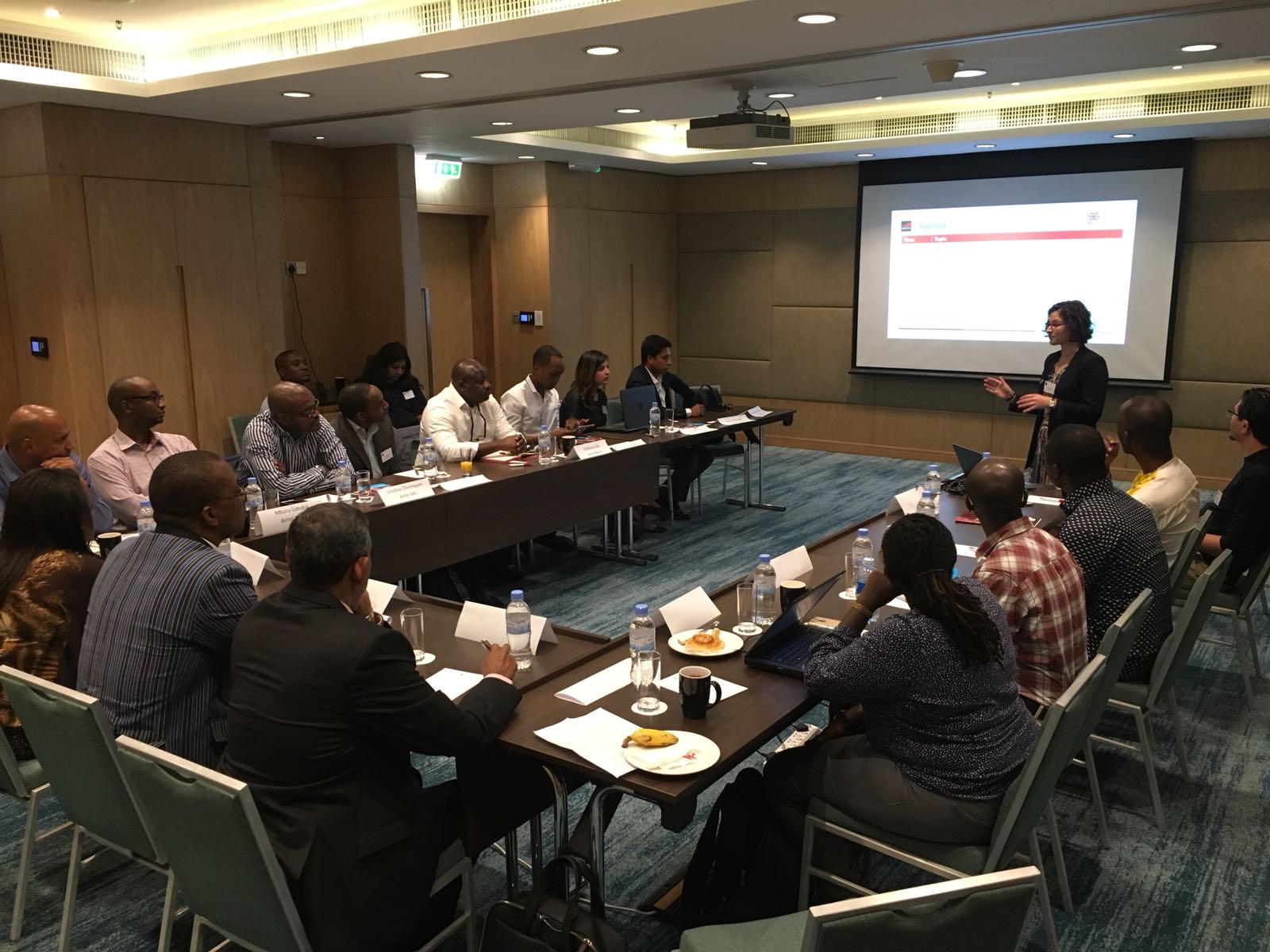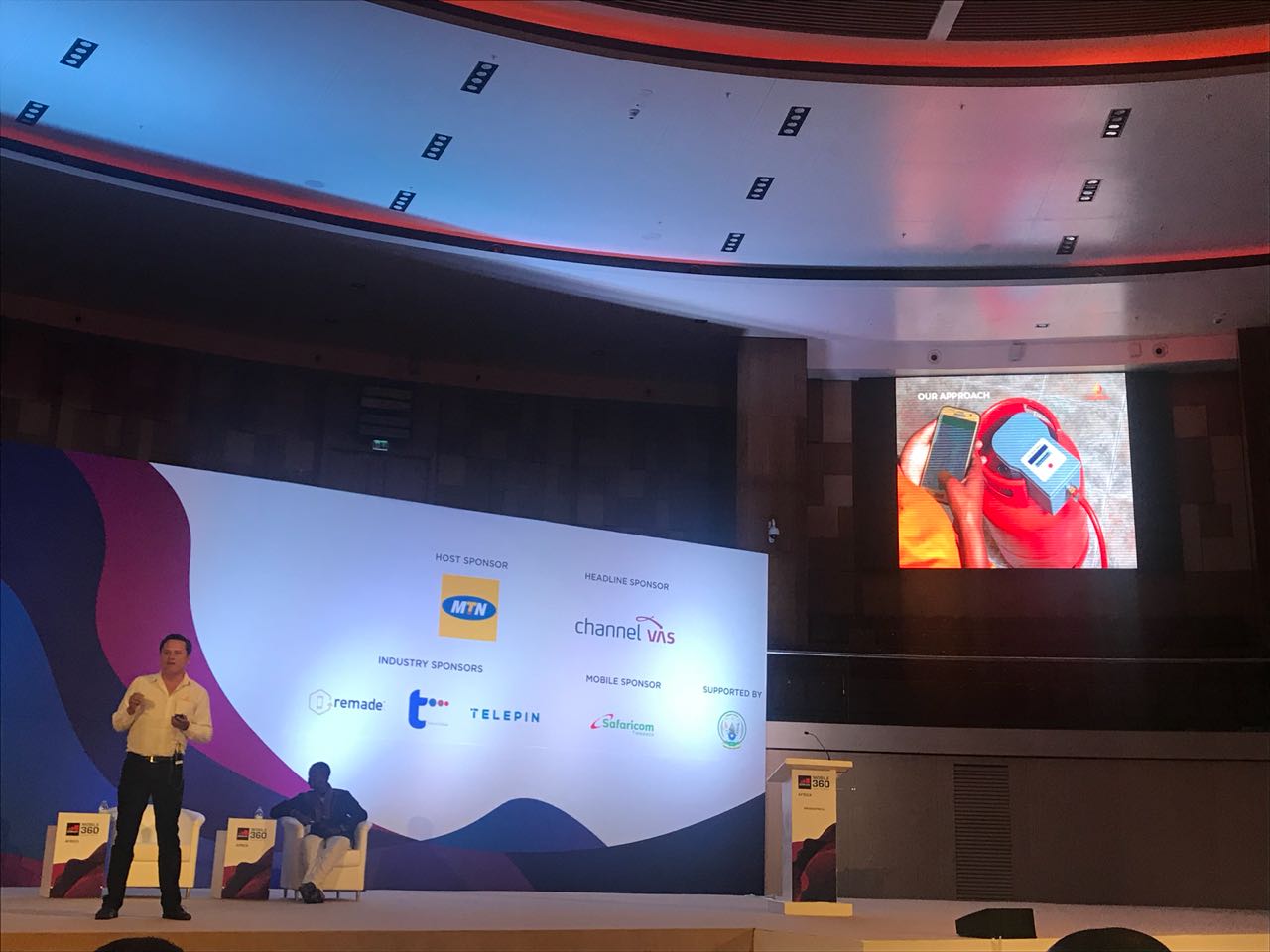Our Mobile for Development (M4D) Utilities team held a two-day event in Kigali, prior to also supporting Mobile 360 – Africa. The team held both a grantee workshop as well as a mobile network operator (MNO) roundtable, which included a field visit. Our grantees were excited to meet each other for the first time, sharing knowledge and experiences of the projects they are conducting across different sectors – the grantee workshop brought together 19 grantees and some of their partners from Asia and Africa. A few of our grantees also participated in Mobile 360 – Africa.
Here’s a summary of our experiences over the two events:
Key takeaways from the grantee workshop
Enabling mobile payments and building partnerships
Despite the prevalence and success of mobile money across sectors and markets, there are still some challenges when it comes to integration and the available solutions. During the grantee discussions on the first day of the workshop, some significant points came through:
- Mobile money adoption in urban areas can actually be more difficult than rural as cash is easily available – this is particularly true for water and sanitation (a good example is our Loowatt case study).
- MNO transaction fees tend to be an overlooked barrier and so there needs to be a way to ensure transaction costs for these services that target small payments from low-income households and consider who should pay – the end user, the service provider or a combination.
- Incentivising mobile payments is key – this can be done through various means, such as by giving discounts or rewards to mobile money customers. Please take a look at out our Mobile Money Payment Toolkit for Utility Service Providers for more details and you can read about how Devergy tested incentives for mobile energy payments in Tanzania.
On the second day, we turned our focus to why partnerships between MNOs and utility providers are essential, and how to make them effective. For more, read the Ecosystem Accelerator report on how start-ups and MNOs can build synergies in emerging markets.
Field visits
Our grantees also visited BBOXX and ARED during our field excursion. At BBOXX, a pay-as-you-go (PAYG) solar home system (SHS) provider, our grantees were interested in learning BBOXX`s business model. They also saw the Instant Payment Notification (IPN) hub in action – the IPN hub is a single point of integration linking MNOs and utility service providers to provide utility services to off-grid populations. For more details on the IPN hub please see our report. At ARED they saw a solar powered kiosk that provides Wi-Fi Internet, solar powered phone charging services and other services to underserved populations. MNOs in particular were interested in learning ARED`s business model and use of IoT in the kiosk.
MNO workshop – payments for utility services
We were excited to host 16 representatives from 12 different mobile operators from Africa and Asia who shared their experiences and progress regarding mobile enabled utility services. Many MNOs in the room brought experience in PAYG solar or pre-paid water services, while others brought experience in IoT and smart-metering for utility services. The discussions revolved around two questions:
1. How can MNOs ensure that utility payments drive more wallet use and transactions?
2. Should MNOs do all business operations, provide platforms to many or both?
These were the main points from the debate:
- MNOs can consider reducing/waiving transaction fees for these services which can catalyse mobile money adoption. MNOs argued that there is a strong need to focus on non-monetary benefits in the short term to improve the mobile money ecosystem which in the long run leads to monetary/ commercial returns.
- PAYG SHS can be a key pathway to mobile money adoption because it builds the first use case for mobile money usage and strengthens the mobile money ecosystem. MNOs also noted that providing a robust mobile money infrastructure i.e. mobile money agents is also important in growing mobile money usage.
- Most MNOs leading in the solar business agreed that partnerships are required to run an effective solar business. A majority of business functions (i.e. distribution, sales, and customer support) cannot be done by a single MNO and this needs to be addressed based on different contexts.
M4D Utilities grantees take centre stage at Mobile 360 Africa
Over the three days of the Mobile 360 Africa event, the M4D Utilities programme shared key messages and profiled our grantees across presentations, panel discussions, and showcases. A few highlights are:
Sebastian Rodriguez-Sanchez, CEO and Co-founder of KopaGas showed our video exploring their service that provides affordable, clean cooking through mobile technology in Tanzania:
We also had Orange Group represented by Thierry Barba present on Orange’s main focus areas in the energy space, including rural electrification, smart metering and leveraging solar powered towers to reduce Orange`s CO2 footprint and resell the surplus (watch a separate video about their strategy here). The GSMA has also funded Orange Burkina Faso to deploy smart metering and Orange Madagascar to deploy SHS.
We also had a presentation from Dr. Najib Lukooya representing Kampala Capital City Authority (KCCA) on how they use technology to improve sanitation service delivery in the city.
Dickson Marira from Wonderkid spoke on a panel session at the Mobile Money Leadership Forum about how Wonderkid’s mobile tools are used by 24 water utilities across Africa to help them issue bills and collect payments via mobile money. Read our Wonderkid case study for more insights of their GSMA grant.
And so we move on the next Mobile 360 Series event in Bangkok on September 5th. Please get in touch if you’ll be there ([email protected]) and keep an eye out for past grantees ME Sol Share and Dialog Sri Lanka.
This initiative is currently funded by the UK Department for International Development (DFID), the Scaling Off-Grid Energy Grand Challenge for Development and
supported by the GSMA and its members.
